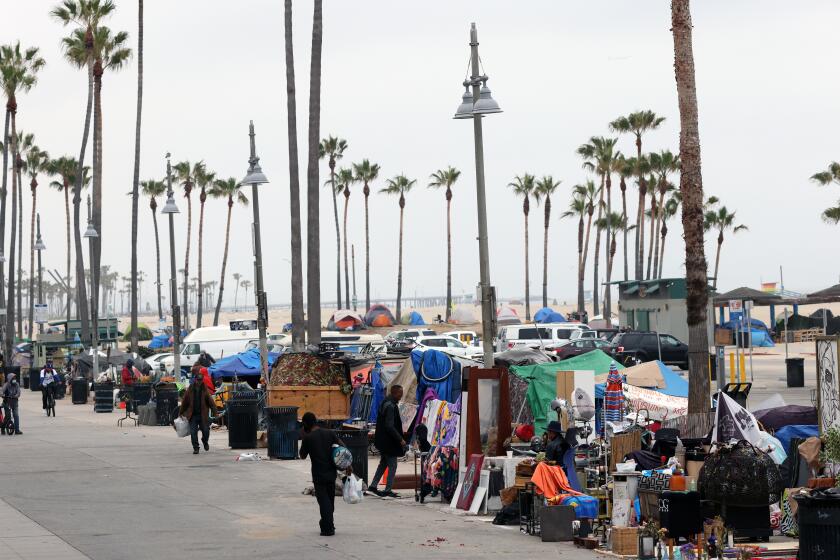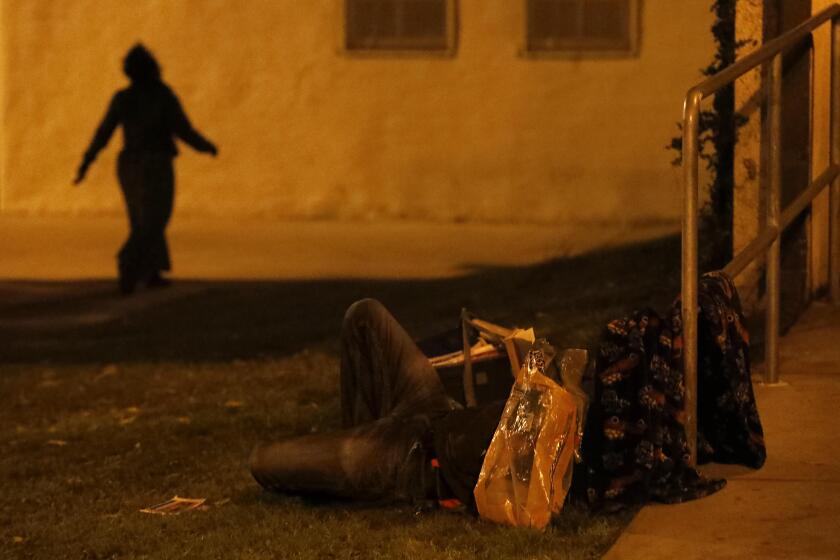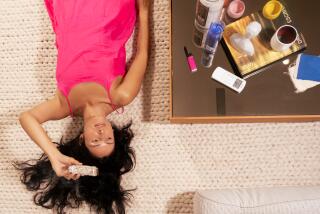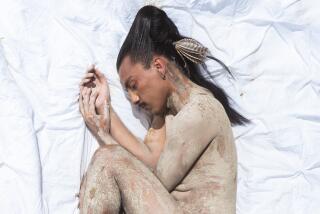Op-Ed: For homeless individuals, getting beauty services and a human touch can be emotional CPR
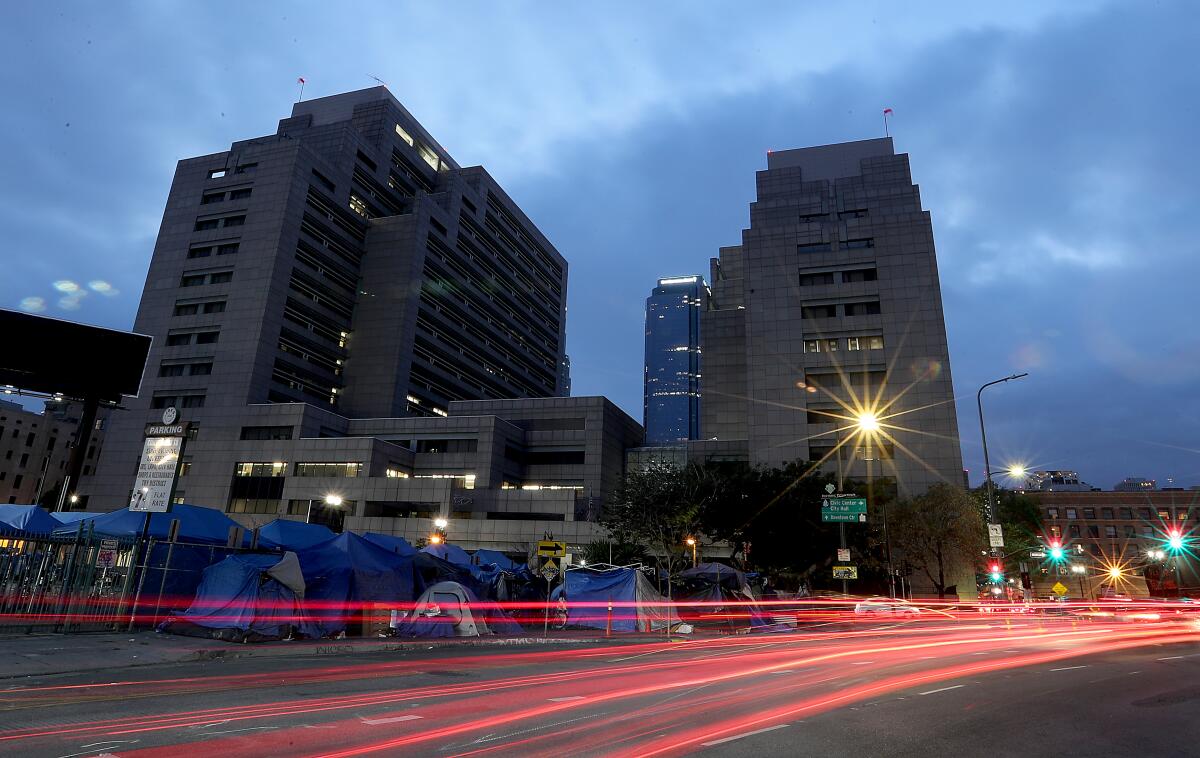
Over the last six years that I’ve spent helping the homeless community of skid row with beauty services, I’ve learned that the needs of our unhoused neighbors extend far beyond the need for shelter.
When someone loses their shelter, they often also lose the things that make us feel worthy and human: the ability to practice self-care, physical connections with others and the ability to have and do things for no reason other than that they make us feel good.
A turning point in my own understanding of the needs of the unhoused came when I saw the complete emotional transformation people had when I did their makeup and washed their hair with my makeshift sidewalk salon setup. Wanting to look good is a valid enough reason to desire and deserve these services, but I learned that requests for beauty items were not purely about vanity.
My neighbors and I in Venice see the suffering among unhoused members of our community. Many need addiction treatment and mental health care.
Beauty routines serve as self-care, and the physical touch my team and I provide homeless individuals offers a loving and sincere moment of human connection this stigmatized community is often without.
My volunteers and I view the work we do as emotional CPR. When someone performs CPR, the goal is to sustain the patient’s life until qualified professionals can heal them fully.
Housing is absolutely a supreme need for the majority of the homeless community we serve, but our small group is unable to create the systemic changes that must occur to meet this need. So we do our best to sustain this community by providing the services we can.
Q is one member of the community for whom our team was able to perform this CPR. When we first started serving Q they asked for cleaning supplies, plants to create a garden and small home décor items for their tent. Because of these donations and the support Q received from our social media family, I saw them transform from a shy, soft-spoken person who was scared to connect with others, into someone who could still discover their happiness. Thankfully Q was able to be reunited with their family with support from our group.
My work in the homeless community began by passing out sandwiches and hygiene kits, but the items I brought to skid row changed as the community shared with me their actual needs: makeup, hair products, a beloved meal from their childhood, their favorite candy and art supplies.
Three unhoused women who live in Venice say they have learned to protect themselves, in body and spirit.
Recreational activities provide purpose too; we hand out art supplies and games. People in need don’t require reminders that they are in need. But they do need to be reminded that they are still deserving of rest, recreation, love and care. We dance, play games and have karaoke parties on the streets of skid row. We celebrate holidays and birthdays too. All in the hopes that people on these streets can have a break from their struggles.
Many people have asked me why homeless people would request things like makeup, hair dye, wigs and eyelashes, which may seem insignificant to housed people. I’ve come to recognize those of us who are lucky enough to have housing can fail to understand that our unhoused counterparts have many facets to their lives; some think that because this population is without a home, housing would be their only need. Yes, housing is a pressing need, but we can improve their lives in other ways too.
For instance, we provide hot homemade-style meals because that’s what many of them ask for. Skid row community members tell us about foods they love from home, like their mom’s sloppy Joes or a favorite breakfast cereal they’d eat while watching Saturday morning cartoons. Our goal with feeding this community goes beyond sustenance; we want to provide food that brings them comfort and the feeling of care that comes from knowing a meal was made with love.
So much of life is centered around choices and when you find yourself without a home, your ability to make choices for yourself is one of the first things you lose. Ultimately, the biggest lesson this work has taught me is: If you want to help those in need, you should ask them how they’d like you to show up for them.
Shirley Raines is the founder of Beauty 2 the Streetz, a nonprofit organization that cares for nearly 1,000 people on skid row.
Instagram: @beauty2thestreetz, TikTok: beauty2thestreetz
More to Read
A cure for the common opinion
Get thought-provoking perspectives with our weekly newsletter.
You may occasionally receive promotional content from the Los Angeles Times.
